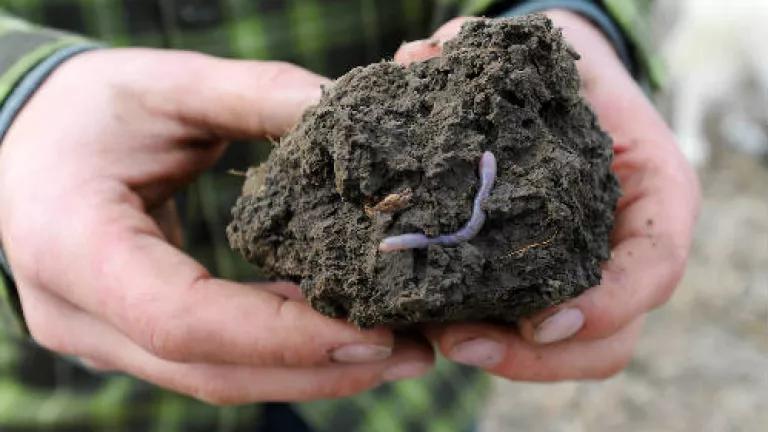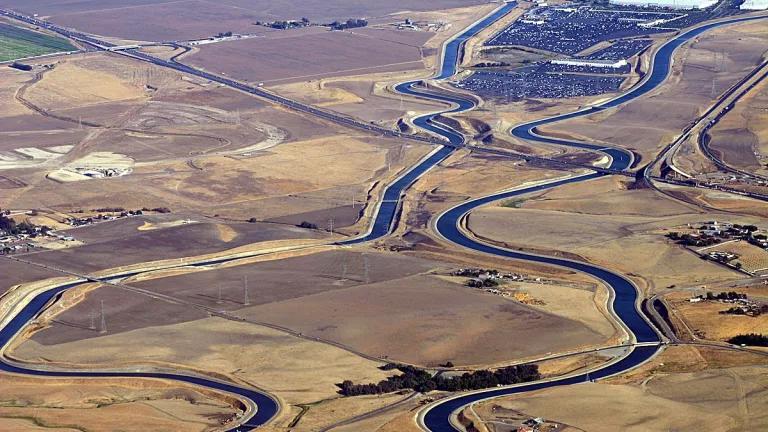Quick Guide to Creating a City Food Waste Work Plan
One often cited barrier to initiating a comprehensive food waste strategy is knowing where to start.
Should you design a new restaurant food waste challenge or should you update the hauling requirements for organics collection first? Are your strategies going to take 1-year or 5-years to implement? How will you track success?
To answer these questions, and organize your approach, the NRDC Food Matters team recommends creating a detailed food waste work plan to guide the city's short-, medium- and long-term food waste goals.
What is the work plan?
- The work plan is a multi-year plan that lays out specific goals, and the corresponding strategies and key actions needed to achieve those goals.
- The work plan can help dictate where to start, how to plan out realistic timelines, who to engage, and when.
- It can be used to outline day-to-day responsibilities and goals for city food waste team members and delivers clear and shared strategies for a cross-agency team.
- It is helpful in organizing and tracking metrics and establishing how to measure impact.
What comes first?
Ideally, the work plan should be developed after the city conducts a baseline assessment and landscape assessments of food rescue and food scrap recycling.
- A baseline assessment provides an estimate of the quantities of wasted food and where it is likely occurring so that each city can set targets for food waste reduction. A baseline assessment can also help cities to estimate how much surplus food could potentially be donated to people in need by businesses and institutions in their communities. Ideally, a baseline will be detailed enough that the findings from the baseline assessment can inform what sectors should be targeted in the work plan. Learn about how to conduct a baseline assessment using our tool.
- The landscape assessments explore the existing conditions of food rescue and food scrap recycling in the community. Check out NRDC’s tools on how to conduct food scrap recycling and food rescue landscape assessments. Recommendations from these assessments should inform and drive many of the strategies in the work plan.
- Beyond the assessments, do not hesitate to be innovative and explore new, creative and city-specific strategies in your work plan. The sky is the limit!
Make it a collaborative process
The work plan should be developed with expertise across agencies and departments. It is essential that the project manager secure buy-in from all agencies and departments involved in the work plan from the beginning and that all agencies understand what level of implementation they are responsible for. While generally internal-facing documents, the work plan should also consider stakeholder engagement and feedback that can guide which strategies should be included and prioritized. The work plan should also lean heavily on the Policies and Programs Toolkit. Ideally, individual strategies should be cross-cutting across prevention, rescue and recycling. At a minimum it should include the following categories:
- Wasted food prevention strategies that will reduce the production and purchase of excess food in many sectors;
- Food rescue strategies that maximize the donation of excess wholesome food to those in need;
- Food scrap recycling strategies that increase the diversion of food scraps from landfills or incinerators and return valuable nutrients to the soil.
The work plan should never be considered set in stone as the work planning process should be iterative and collaboratively revised over time, ideally with updates occurring at least every six months.
What should the work plan include?
- An overall timeline for the design and implementation of the strategies, including time-based milestones; the detailed activities and deliverables required to reach the milestones that will occur during different time intervals (12-month, 2-year, 5-year, etc.) of the work plan;
- City-based and non-city based resources and support needed to achieve each strategy;
- Estimated amount of time that key staff employed by the city can commit to the design and implementation of the strategies;
- Detailed metrics that will be tracked for each strategy to understand impact over time such as numbers of businesses or restaurants engaged, or amount of food waste diverted from landfill; and
- Stakeholders that need to be engaged for each strategy across several sectors.
Example Strategies
NRDC Food Matters team developed a wide array of guides and templates drawing on lessons learned from the deep partnerships in our model cities of Denver and Baltimore, as well as our work in Nashville, New York City, and other cities across the United States. When creating your food waste work plan, please utilize these tools as they can be helpful in understanding timeline, resources needed, case studies, staff time, metrics and stakeholders needed for each strategy.
The strategy examples listed below, pulled directly from the work planning process with the City of Denver, can help your city to stimulate discussion about the best city-specific solutions. But remember, these are only a small sampling of the strategies for generating ideas, use them as a guide and don’t be limited to these examples.
- Resident Engagement
- Household food waste prevention education through the Save the Food Campaign and other food reduction and composting messaging.
- Business Engagement
- Conduct restaurant engagement through challenges, audit programs, and/or city-led technical assistance programs.
- Disseminate user-friendly food safety guidance to licensed food facilities and incorporate donation education into inspector site visits as appropriate.
- Stakeholder Engagement
- City-led stakeholder engagement to explore funding and financing for food rescue and collaboration to increase the amount of food distributed to food insecure individuals.
- Policy and Infrastructure
- Reform waste policies to encourage/incentivize organics recycling.
Where does your city see additional opportunities for work plan strategies? Do you have a good relationship with the schools district or local universities, and how can that be leveraged to reduce school food waste? Do you see opportunities to engage with hotels and large catering events to divert food waste from the landfill? What about the convention center, the airport or another quasi-governmental venue? Can you change internal city policies to encourage food waste reduction, recycling, or surplus food donation from city-owned buildings or events?
Don’t hesitate to innovate! If you are creating a work plan and have suggestions for strategies or solutions from your city, we would love to hear it--please reach out to foodmatters@nrdc.org.




